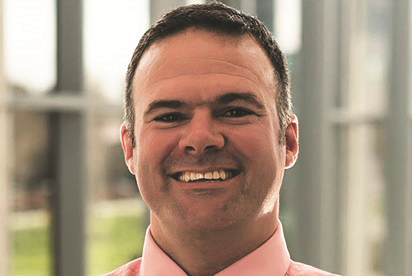
Company Chemists’ Association
Proposals to develop a five-year apprenticeship scheme for pharmacists have been criticised as “highly disruptive to the profession”.
The proposals were published on 4 April 2019 by the Institute for Apprenticeships and Technical Education (IATE), an arm’s-length government body, following their submission by the Pharmacy Apprenticeship Trailblazer Group, an organisation representing employers across the pharmacy sector, including the large multiple pharmacy chains.
Details on the plans are sketchy, but an official consultation on the proposals was launched by IATE on 4 April 2019. The consultation is open for responses for ten days only.
Any group of employers that is recognised by the IATE can put forward their own proposals for an apprenticeship scheme in their profession or industry.
Malcolm Harrison, chief executive of the Company Chemists’ Association (CCA), confirmed that some of its members, including large multiples, were directly involved in developing the proposals through the trailblazer group.
“Some CCA members are involved in the group, alongside hospital employers, other community pharmacy employers and pharmaceutical employers,” he said.
“The group has been working on apprenticeship standard development for pharmacy assistants and pharmacy technicians for some time. However, we understand the proposal for a pharmacist degree apprenticeship is only in the very explorative stage.”
Harrison added that the General Pharmaceutical Council (GPhC), Health Education England and pharmacy schools “will be engaged in the process” if the proposals are developed further.
However, the Pharmacists’ Defence Association (PDA) has urged its members to reject the idea of a pharmacist apprenticeship scheme because it would lead “to a two-tier approach to qualifying as a pharmacist”.
In its response to the consultation, published on 11 April 2019, the PDA said: “An apprenticeship route for qualification as a pharmacist would be highly disruptive to the pharmacy profession. It would shift the profession away from a professional university-led model to a model traditionally associated with technical occupations.”
The apprenticeship plans were discussed at the GPhC council meeting on 11 April 2019.
Aamer Safdar, principal pharmacist lead for education and development at Guy’s and St Thomas’ NHS Foundation Trust, told the meeting that he “can’t see it having any legs”.

Source: Nic Bunce / The Pharmaceutical Journal
Aamer Safdar, principal pharmacist lead for education and development at Guy’s and St Thomas’ NHS Foundation Trust, said the proposals were unlikely to succeed
“If you’ve got the threat of HEE cutting funding for [preregistration] pharmacists — which are currently put on hold — if that comes next year, I can’t see employers saying ‘we’re going to do this apprenticeship and this will cost us’.
“A few years ago there was a proposal for foundation-year pharmacists to be an apprenticeship, which died a slow death,” he added.
Under the government apprenticeships scheme, employers are expected to pay apprentices a minimum wage of £3.90 per hour, but they must be paid at least the minimum wage rate for their age if they are aged 19 years or over and have completed their first year as an apprentice.
Employers are also expected to fund university degree fees for the apprentice, through either the apprenticeship levy for large employers or a similar co-investment scheme with the government for smaller employers.
The apprenticeship levy already sees large employers with an annual pay bill of more than £3m contribute to the training of apprentices.
Also speaking at the GPhC’s council meeting, Mark Voce, its interim director of education and standards, said that if these proposals were taken forward the GPhC would be involved “as it is on any situation where, for example, a university was setting up a degree”.


